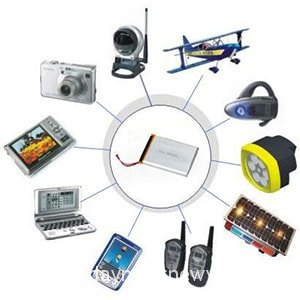Did you ever read any of the widely circulated WhatsApp broadcasts about phone batteries exploding? There might be some truth to that. Today, we explore the reason why this happens and how you could protect yourself and others.
People dump old phones or laptop batteries in household waste bins because they are ignorant about the dangers of doing so. Lithium-ion or Li-ion batteries are rechargeable batteries that are used in phones, laptops, tablets, scooters, e-bikes, solar-power backup storage, electronic toothbrushes, and other tools and devices. Nearly everyone uses a Li-ion battery, whether or not they know its contents or the potential risks posed when it is no longer serving them. The time when these batteries are ‘spent’ and ready to be disposed of is known as the End of Life (E.O.L).
Earlier this month, The United Kingdom local authorities told BBC that “Batteries thrown in household rubbish bins cause about 700 fires every year in dustcarts and waste-processing centers.” One would wonder how many such fires break out in Africa where there are currently very minimal lithium-ion battery recycling facilities. With a growing market for both rechargeable mobile devices and solar power supply devices, Africa should have proper structures in place for the safe disposal and recycling of Li-ion batteries. But unfortunately, that is not the case.
Read Also: Wangari Maathai: An African Science Shero You Should Know
In spite of the provision of Lithium-ion battery recycling points and directories to these recycling centers in the UK, losses accruing from Li-ion explosion fire services and other costs wind up to £158m annually. This is not often due to negligence but to the use of tiny powerful hidden Li-ion batteries in small devices like electronic toothbrushes, toys, greeting cards, and vapes. Often times, users dispose of these devices in household waste bins without knowing that they were powered by Li-ion batteries.
Many Africans currently use these small devices even with little to no recycling facilities for their highly explosive batteries at E.O.L. Imagine that some unsuspecting waste management company worker will be at risk of burns, should the batteries explode during collection or disposal of household wastes. Aside from the risk posed to environmental sanitation workers, the cost of quelling fire outbreaks is enormous and sometimes fire service is not even efficient enough to save the day in some countries. Add the environmental impact of indiscriminate battery disposal and unsupervised recycling done by local recyclers and it is even more devastating for the African continent and the world at large.
Although environmentally sound recycling methods are very costly, it is cheaper than the attendant problems from the unregulated disposal of Li-ion batteries. Since the major type of rechargeable battery in portable consumer electronics, is Li-ion and this is not likely to change soon, effort must be put in place to educate users on the safest methods of disposal and recycling centers near them. You can contribute towards this by educating a neighbor, friend, family member, or colleague.
It is not an occasion to spread panic about phones exploding from beside pillows and bedside drawers at night. Li-ion batteries are very safe while they are still in good shape but they can explode when crushed or damaged. This is because it consists of two electrodes and a separator that keeps them from making contact but allows charged particles – lithium ions – to flow, through a solvent, across the electrodes. When recharging the battery, you are using electricity to push the ions back to where they started. However, if the battery is crushed such that the electrodes make direct contact with each other, it can cause all the charged particles to suddenly discharge in an explosion. Considering that the contents of these battery is highly inflammable, a fire outbreak becomes inevitable.
Sounds new? Share this new knowledge with a neighbour, a friend, or family member today!
Ehi-kowoicho Ogwiji is a storyteller and science writer who advocates for a science-literate Africa. She aspires to be a science development communicator and leader of important conversations around gender imbalances in STEMM (Science, Technology, Engineering, Mathematics, Medicine) in Africa and around the world. She writes from Abuja, Nigeria. Connect with her on social media @ogwijiehi or email her at ehikowoicho.ogwiji@gmail.com
